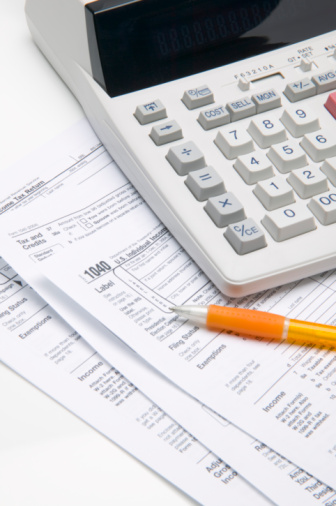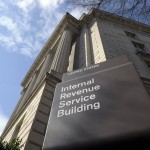Prepare for an Offshore IRS Audit
There’s no worse feeling in the world than coming home to a letter from the IRS telling you that you are being audited … until you get notice of an offshore IRS audit. No matter how organized you are, you should fear the great IRS. If you have unreported accounts or become the subject of an offshore IRS audit, you need to take steps to protect yourself.
In this article, I’ll explain what you can do to prepare for an offshore IRS audit. If the collector is closing in, you have options. If the government isn’t at your door today, use these tips to structure your offshore affairs before trouble finds you.
First, you need to figure out how scared you should be. If you have an unreported offshore account or offshore company, you should be very afraid … a 10 out of 10. If you had more than $10,000 in an offshore account, even for one day, you face serious risk if you didn’t file an FBAR.
If you used an offshore incorporator to form your offshore company that doesn’t provide U.S. tax compliance, you should be concerned … anywhere from a 5 to 8 out of 10. This is because you might have failed to file a form or two. Even if you submitted the Foreign Bank Account Report (FBAR) and paid tax, you could be facing hundreds of thousands of dollars in penalties for not reporting the structure.
Second, you need to determine your risks. Are there any unfiled returns or forms? Any unreported income the auditor might find? Have you underrated your income or overstated your expenses? Are your records well organized and ready for an offshore IRS audit? If they are all stuffed in to the shoebox under your bed, the answer is no!
Finally, I strongly recommend you get help when facing offshore IRS audit. Only an experienced professional is capable of identifying these risks and determining how likely they are to come to light in the exam.
While I certainly appreciate your perusing this site, and my many articles on offshore filing, I am writing on their general use. When facing someone from the government whose only mission in life is to take what you have, you should hire a professional, even a tax attorney, to represent you. He or she will analyze your specific situation, identify weaknesses, and develop a comprehensive plan to deal with the offshore IRS audit.
Even if you think your risks are minimal, or you don’t have the money to hire a tax lawyer, at least consult a professional. Let them review the audit request, and consider your situation. Find out if they believe you can handle the agent on your own. This might cost a few hundred dollars, but will give you peace of mind. Be honest and tell them all the good or bad during the consultation.
Prepare for an Offshore IRS Audit
Whether you’re going in to battle alone, or with a tax lawyer by your side, here are my recommendations on how to prepare for an IRS audit that includes offshore transactions or international investments.
Don’t be a snitch! Never volunteer information in an IRS audit and this goes double in an offshore IRS audit. The agent is NOT your friend. He’s there to find errors and extract a penalty for those mistakes. While you must always be honest, only answer questions that are asked. Never volunteer new information or expand on a subject beyond the question. You might think you are helping, but you’re just making things worse.
The same goes for documents. Never give more paper than is requested. You might think it shows good faith, and you’d be wrong again. More documentation just gives them more ammunition. More chances to find an error or a discrepancy.
If you take my message to heart and hire a tax professional to do battle with the IRS, you might never speak to the agent. When I was representing clients in offshore IRS audits, I never let the agent get near them. All communications went through me and me alone. I minimized the information exchanged and did my best to keep the auditor focused on areas that were our strengths … and away from those that were of concern.
Review your bank statements. Go through your bank statements and understand each and every deposit. Those that are income should be identified as such. Those that are nontaxable, such as loans and gifts, should have supporting documents. The first line of attack in an offshore IRS audit is the bank statement, so be ready to prove up all nontaxable items.
At the same time, identify and find documentation for all business expenses. If you deducted it, have an invoice or receipt ready to go. Never be caught off guard when the agent asks, “What’s this payment for?” Have an answer with proof ready.
Remember that, so long as you are a U.S. citizen, the IRS has a right to audit your offshore company and international business activities. Therefore, you must maintain records of income and expenses for offshore transactions just as you would for a U.S. based business.
I understand that sometimes practices in foreign countries conflict with your desire to document expenses. For example, it is common to pay employees in cash in South America, but it’s hard to prove this as an expense to the IRS.
What I’ve found successful in offshore IRS audits is a log book. Keep a book of each cash payment including the date, employee (independent contractor), brief job description, amount, and their signature. So long as you keep a signed log, cash payments will usually be accepted by the IRS.
Don’t file a tax return during an offshore IRS audit. If you file new or delinquent returns during an exam, the audit will usually expand to add those years. If you file a return claiming foreign sourced income during an audit, you might be admitting to a crime … something you should never do. If your audit is going on around April 15, get an extension for last year’s return until October 15.
If you have unfiled returns, the agent will probably ask you to file them with him. Assume they’ll be audited and be prepared to prove each item. If you have unfiled returns and offshore issues, see Rule 1: Hire a Professional Immediately.
Foreign Earned Income Exclusion (FEIE): If you are living and working abroad, and qualify for the FEIE, you can earn nearly $100,000 per year tax free in a salary. However, if you don’t file a return, and get mixed up in to an offshore IRS audit, you can lose the FEIE entirely. That’s right, if you don’t take the FEIE you can lose it if you’re audited. If the IRS hasn’t contacted you yet, remember, use it or lose it and file as soon as possible.
Get your records in order. Begin to get your documents and supporting proof together the day you receive the IRS letter. Don’t delay and don’t put it off. I can’t tell you how many people hide their heads in the sand for weeks after receiving an offshore IRS audit notice. Don’t waste a minute. Get ready to meet the enemy in combat as soon as possible. The day of reckoning is coming and you are well behind in the count. You need every second to get ready.
It will take longer to organize your paperwork than you expect. Also, being proactive will give you time to develop a plan of defense and order any missing documents from banks, brokerages, etc. Remember that you never want to answer a question with “I don’t know.” You need to be ready and organized on day 1 to show you’re not the easy target the auditor is looking for … not a pushover who’ll go quietly, but rather someone who’s prepared and knows his rights.
* Note that all records must be printed. The IRS auditor won’t accept electronic files.
Try to be nice. Even if you have to fake it, be nice and courteous. Most IRS auditors are just doing their jobs … which, unfortunately, is to separate you from your money. They view you as one of their 100+ cases. Don’t be rude or do anything to get on their bad side. Remain one of 100. There is no reason to draw their ire or special attention.
If you are unable to deal professionally with an offshore IRS audit, don’t get involved and see rule 1 again. Hire a professional and stay out of the room. One of a tax lawyer’s more important skills is to treat the auditor with respect and direct them away from areas of concern.
Have a payment plan in mind. If you think the auditor will find your undocumented expenses or unreported income, have a plan to deal with the resulting tax bill. If offshore IRS audit will result in a balance due, you need to be ready to pay up. If you can’t pay now, have installment agreement ready.
For more information on setting up a payment plan, I suggest you read through www.taxdebtrelief247.com. This blog has quite a bit of quality information on how to deal with the collection division of the IRS.
I also recommend How to Settle with the IRS by Goldstein and Ofstein, and Stand Up to the IRS by Frederick Daily. Both of these books are available on Amazon.
You can find my book on international tax and business for American expats on this site (see the bookstore). It includes detailed information on battling the IRS in an offshore audit and settling with collections.
I hope you have found this post on offshore IRS audits helpful. Feel free to email me at info@premieroffshore.com with any questions or suggestions. If you require a tax attorney experienced in these matters, I will be happy to provide you with a referral.











Leave a Reply
Want to join the discussion?Feel free to contribute!